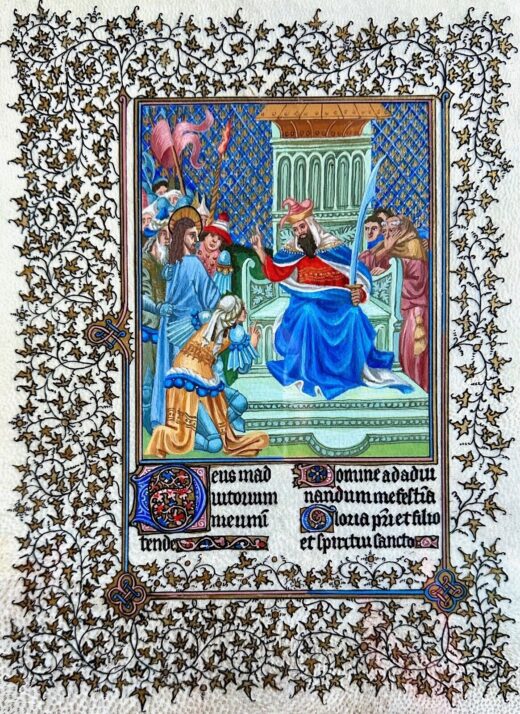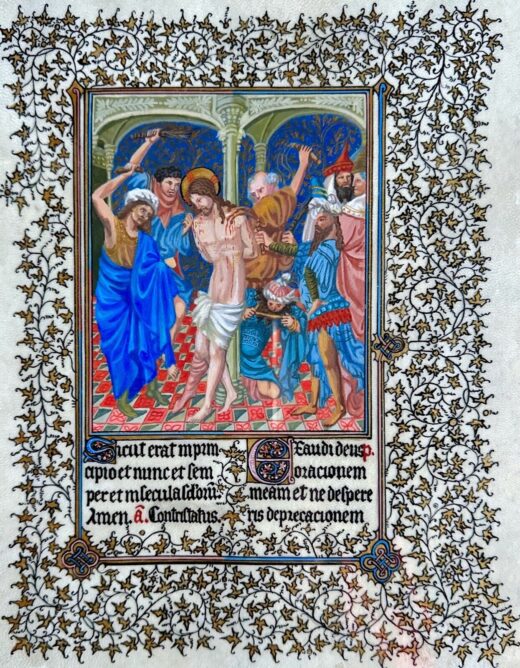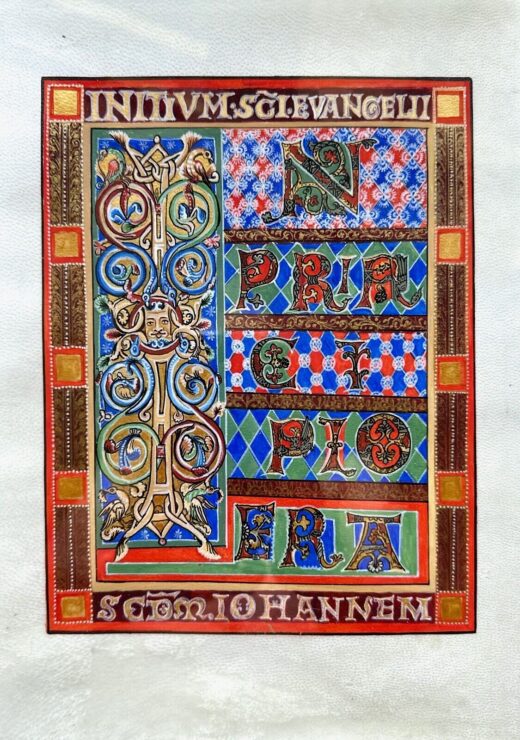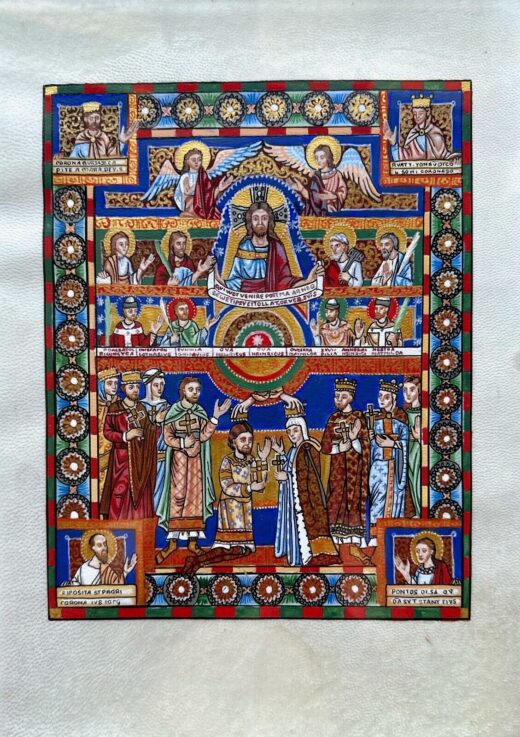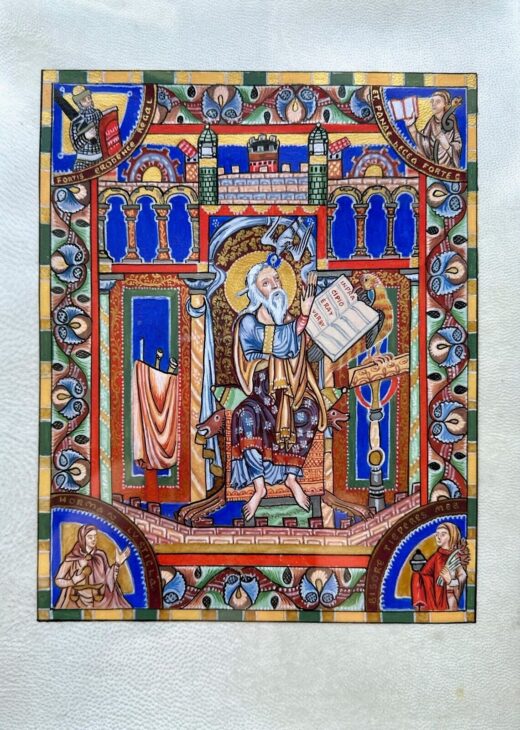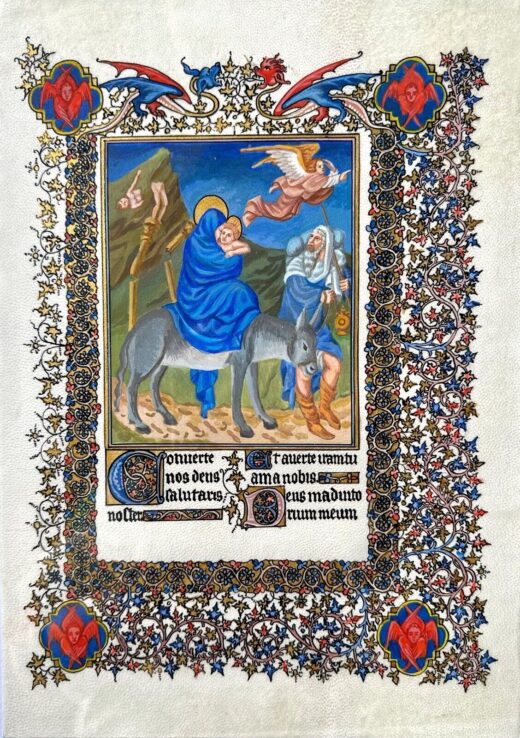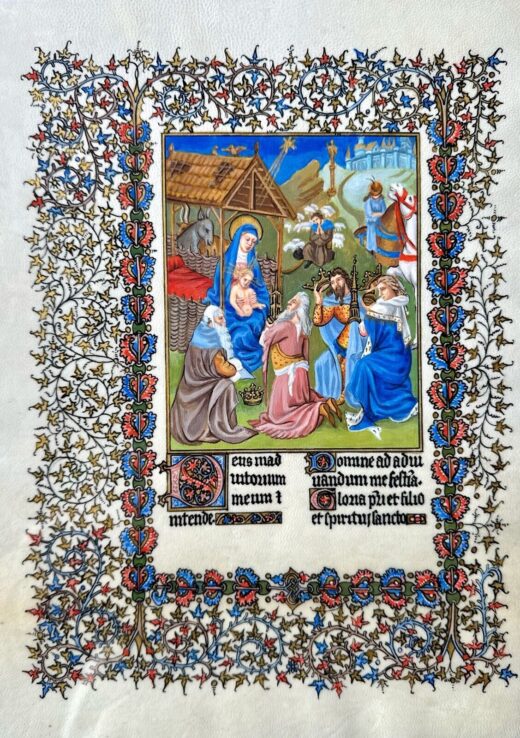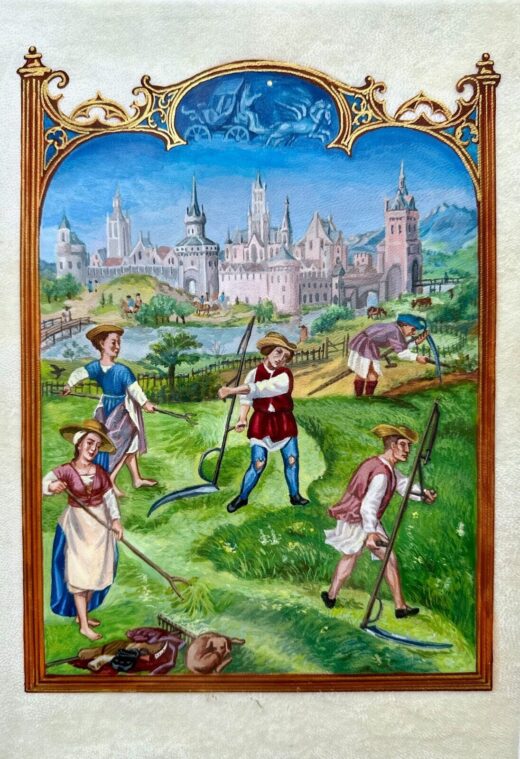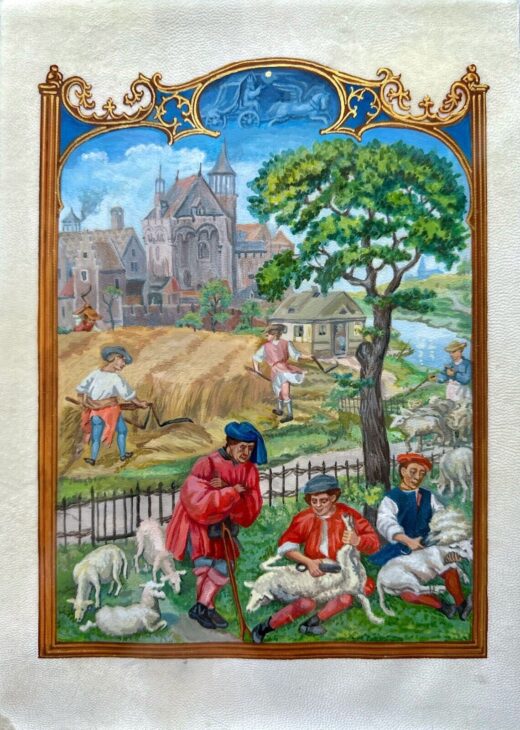Explore the intricate beauty of illuminated manuscripts and hand-written books adorned with gold and color. Discover their history and artistry.
Illuminated Manuscript: A Window into Medieval Art
Illuminated manuscript, a hand-written book decorated with gold, silver, and vibrant colors, was a hallmark of medieval art. Here you can also learn interesting facts about the illuminated manuscript:
- Illuminated manuscripts served not only religious texts but also secular works such as poetry, history, and science.
- The manuscripts were highly valued not only for their content but also for their beauty and craftsmanship.
- Creating an illuminated manuscript involved a collaborative effort between a scribe, artist, and binder, each skilled in their respective trades.
- Many illuminated manuscripts have survived to this day, providing a glimpse into medieval Europe’s artistic and intellectual achievements.
From the 5th to the 15th century, monks and skilled artists created these manuscripts on leather parchment using pigments from minerals and plants.
Medieval Painting in Illuminated Manuscripts
The vibrant colors and intricate details of illuminated manuscripts reflect the artistic style of the time. Medieval painting was characterized by a need for more perspective and proportion, as artists aimed to convey spiritual truths rather than realistic images. The images in illuminated manuscripts were often religious, with depictions of saints, biblical scenes, and religious rituals.
Gothic Art in Illuminated Manuscripts
The Gothic period saw a shift towards more naturalistic and expressive art. Gothic illuminated manuscripts featured more detailed and realistic depictions of people and animals and intricate patterns and borders. However, gold and bright colors remained prevalent, emphasizing creating a sense of awe and grandeur.
Medieval Manuscript Production
Creating an illuminated manuscript was a laborious and time-consuming process. First, the parchment had to be carefully prepared and cut to size, and the text was written by hand with a quill pen. The illustrations and decorations were then added, often by a separate artist. Using precious materials such as gold and silver made illuminated manuscripts highly valuable and reserved for the wealthy and powerful.
Renewed Interest in Illuminated Manuscripts
In recent years, there has been a renewed interest in illuminated manuscripts. Museums and libraries worldwide have digitized their collections, making these historic works more accessible. Modern artists have also been inspired by the intricate designs and vibrant colors of illuminated manuscripts, creating their interpretations in various media.
Conclusion
Illuminated manuscripts provide a fascinating window into medieval art and culture. These works of art demonstrate the skill and creativity of medieval artists and offer a glimpse into the spiritual and intellectual life of the time. As interest in illuminated manuscripts grows, their legacy as masterpieces of medieval art and craft endures.
Showing 1–16 of 126 resultsSorted by latest


